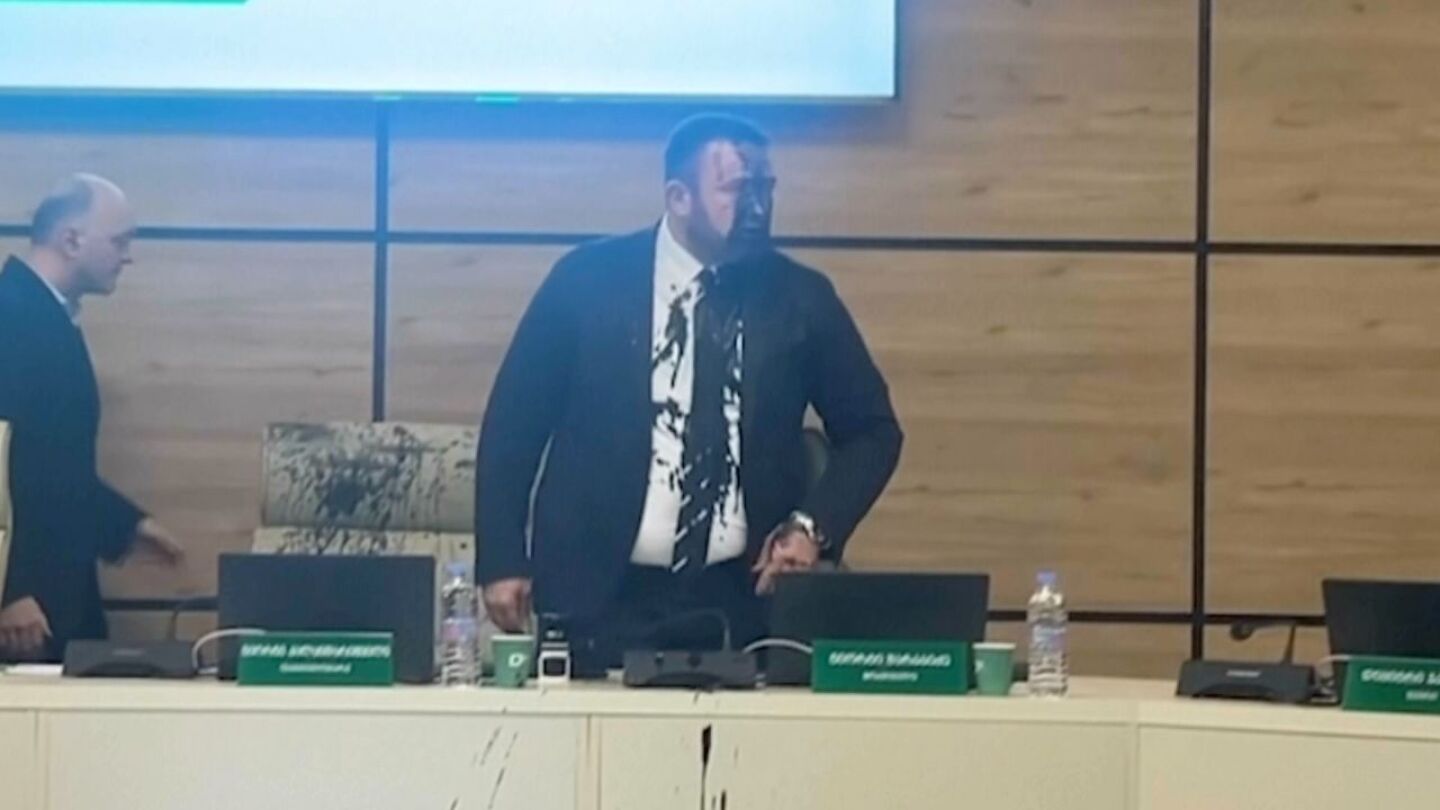Parliament speaker in Georgia signs into law a bill that critics say curbs media freedom
Associated PressTBILISI, Georgia — The speaker of Georgia’s parliament said he signed into law Monday a measure that has drawn weeks of protests by critics who say it will curb media freedom and jeopardize the country’s chances of joining the European Union. Zourabichvili, who is increasingly at odds with the governing party, had opposed the bill, accusing the party of jeopardizing Georgia’s future and “hindering the path toward becoming a full member of the free and democratic world.” Ghia Nodia, a Tbilisi-based political analyst, said the new law marked a “turning point” for Georgia. Zurab Japaridze, head of the opposition Girchi -More Freedom party, said the purpose of the law was to “cleanse this country of the nongovernmental sector, critical media, and opposition parties, and bring us to the reality that exists in Russia.” Prime Minister Irakli Kobakhidze dismissed the criticism as “unnecessary emotions that had only an artificial basis.” “Only the ill-wishers of our country have been defeated,” he said, adding that “now the law has already come into force and we all have to act pragmatically, with a cool mind and put aside unnecessary emotions.” Over the weekend, the opposition United National Movement said a crowd of masked men attacked its central offices in Tbilisi, smashing windows and damaging property. After signing the bill, Papuashvili reaffirmed that its main purpose was to “increase the resistance of the political, economic and social systems of Georgia to external interference.” “If nongovernmental organizations and mass media want to participate in the decision-making process and influence the life of the Georgian people with funding from foreign governments, they must meet the minimum standard of transparency — the public must know who is behind each actor,” he said. Following passage of the bill last month, U.S. Secretary of State Antony Blinken announced that travel sanctions would be imposed on officials “who are responsible for or complicit in undermining democracy in Georgia.” He voiced hope Georgia’s government will reverse course and “take steps to move forward with their nation’s democratic and Euro-Atlantic aspirations.” The United National Movement describes the law as part of efforts by Georgian Dream to drag the country into Russia’s sphere of influence — a claim the ruling party angrily rejects.
History of this topic
Georgia’s newly elected parliament opens its first session with opposition boycotting
Associated Press
Georgia’s president refuses to sign an anti-LGBTQ bill and returns it to parliament
Associated Press
Georgia’s president refuses to sign anti-LGBTQ bill
Al JazeeraGeorgian parliament approves anti-LGBTQ legislation, echoing measures in Russia
Associated PressUS imposes travel bans on Georgian officials over new law that critics say will curb media freedom
Associated Press
Georgia parliament overrides president’s veto of controversial ‘foreign agents’ law
The Independent
Victory for Putin as Georgia's parliament overrides presidential veto and passes divisive 'foreign agents' legislation - despite mass protests against the bill described as 'the Russian law'
Daily Mail
Georgian lawmakers debate overriding presidential veto of divisive foreign influence bill
Hindustan Times
Georgian parliament overrides presidential veto of ‘foreign agent bill’
Al JazeeraGeorgian PM, president criticize each other over media freedom law on Independence Day
Associated PressGeorgia’s president vetoes media legislation that has provoked weeks of protests
Associated PressGeorgia’s leader says a divisive media bill passed by lawmakers is unacceptable and she’ll veto it
Associated Press
Georgia parliament passes ‘foreign agent’ bill, triggering massive protests
Al JazeeraWhat is the newly passed ‘Russia law’ that has divided people in Georgia for months?
Associated Press
Violence breaks out outside AND inside parliament as Georgia APPROVES 'Russian law' bill that has plunged the country into crisis and pushed it closer to Putin
Daily MailProtesters throng streets of Georgia's capital after parliament passes so-called 'Russian law'
Associated PressWhy did bill to stem ‘foreign influence’ trigger protests in Georgia over country’s media freedom?
Associated Press
EU and US urge Georgia to halt ‘foreign agents’ bill and not turn away from West after mass protests
The IndependentGeorgia parliament cancels session after building damaged during huge protests
Associated Press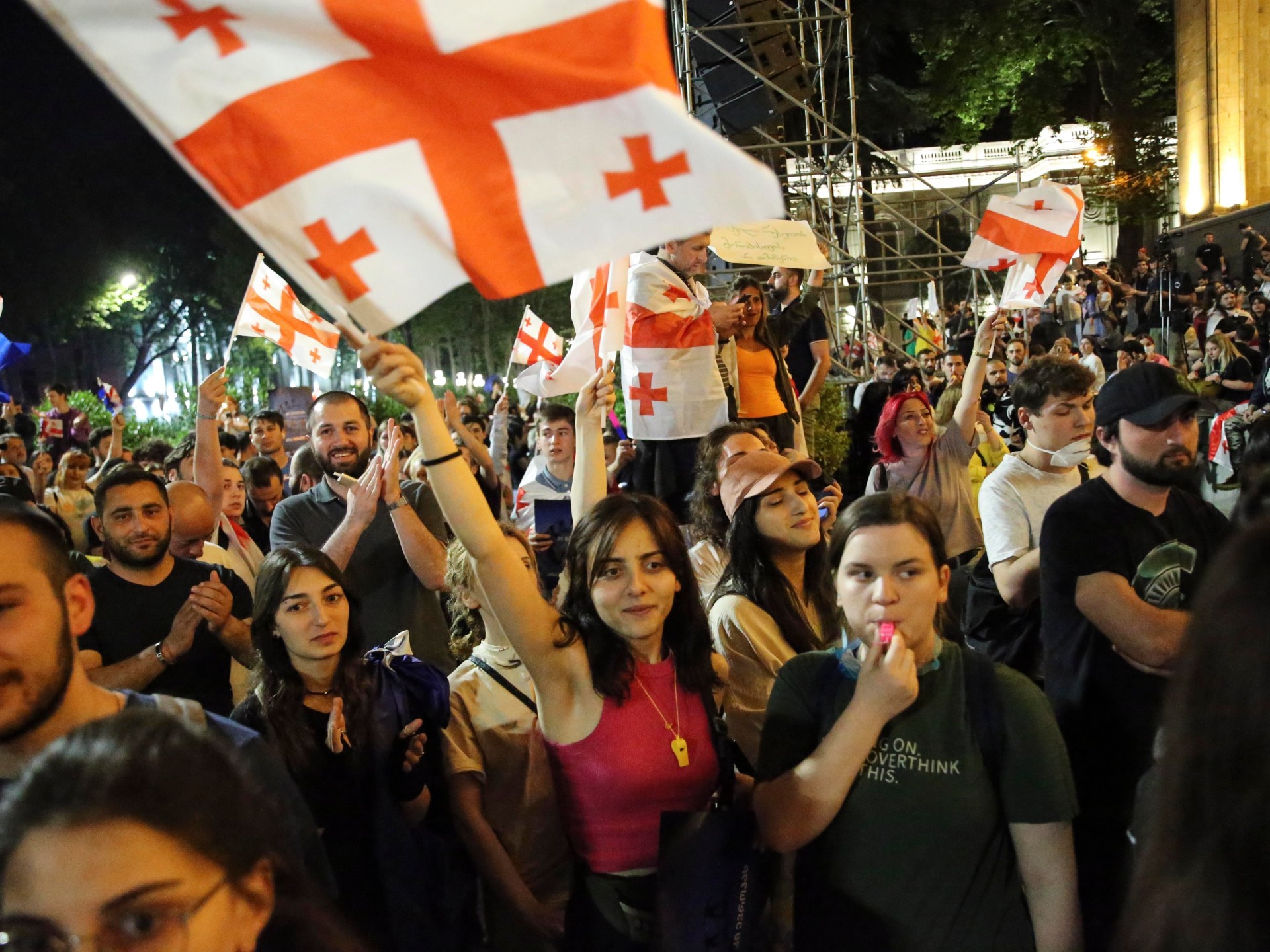
Thousands rally in Georgia as Parliament advances ‘foreign influence’ bill
Al JazeeraGeorgian lawmakers move closer to passing ‘Russian law’ targeting the media. Protesters gather again
Associated PressPolice in Georgia use tear gas, water cannons to disperse protest against so-called ‘Russian law’
Associated Press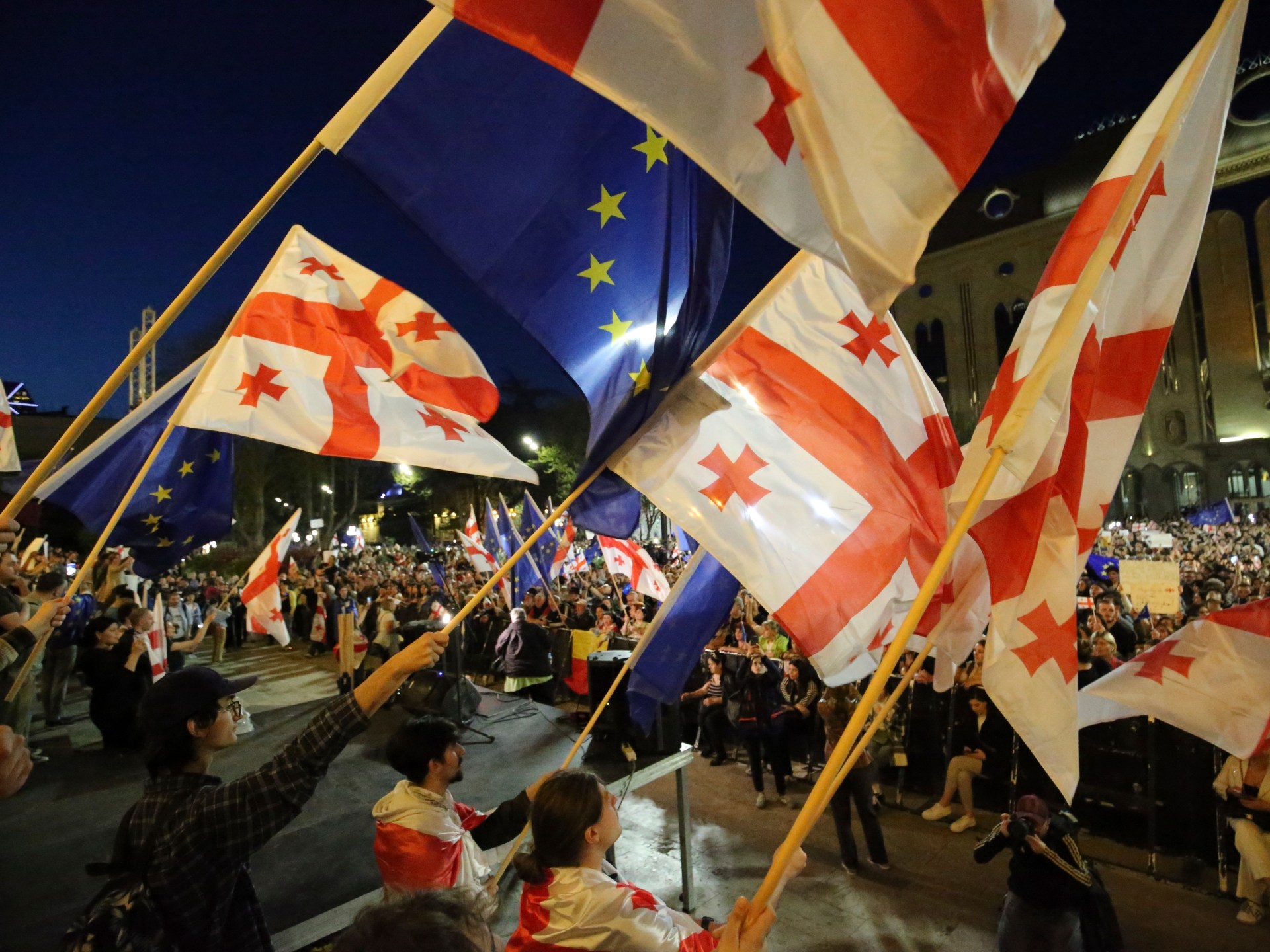
Georgia advances ‘foreign agents’ bill as 20,000 rally against it
Al Jazeera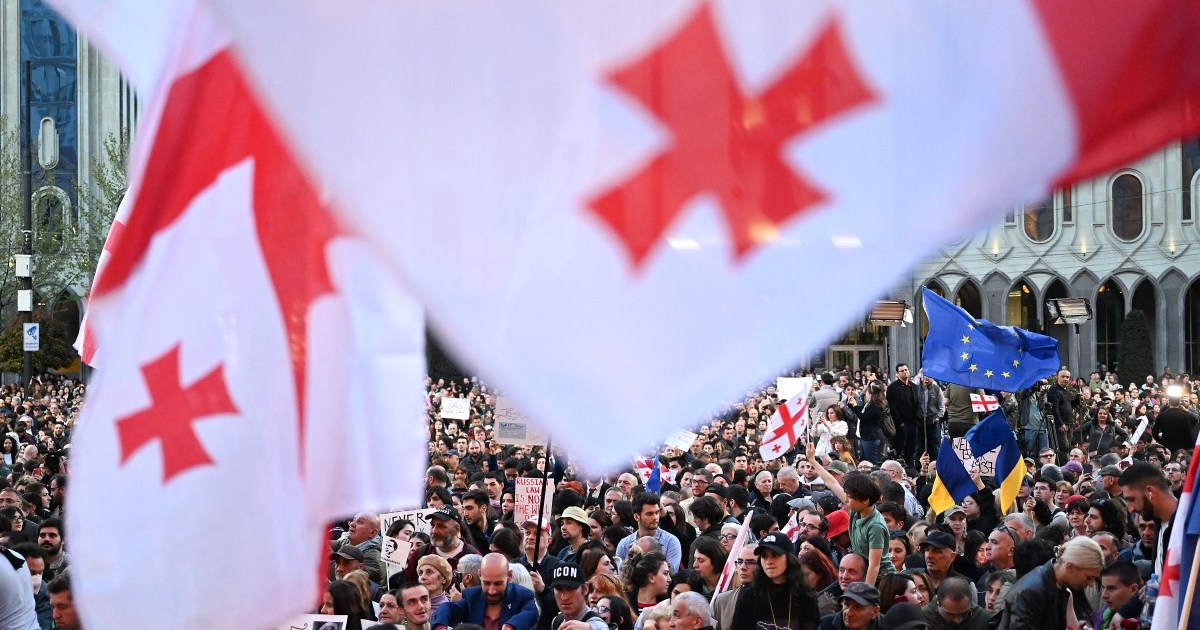
Thousands protest in Georgia over contentious ‘foreign agents’ bill
Al JazeeraGeorgia lawmakers scuffle over a divisive bill that opponents say mimics Kremlin’s repressive law
Associated Press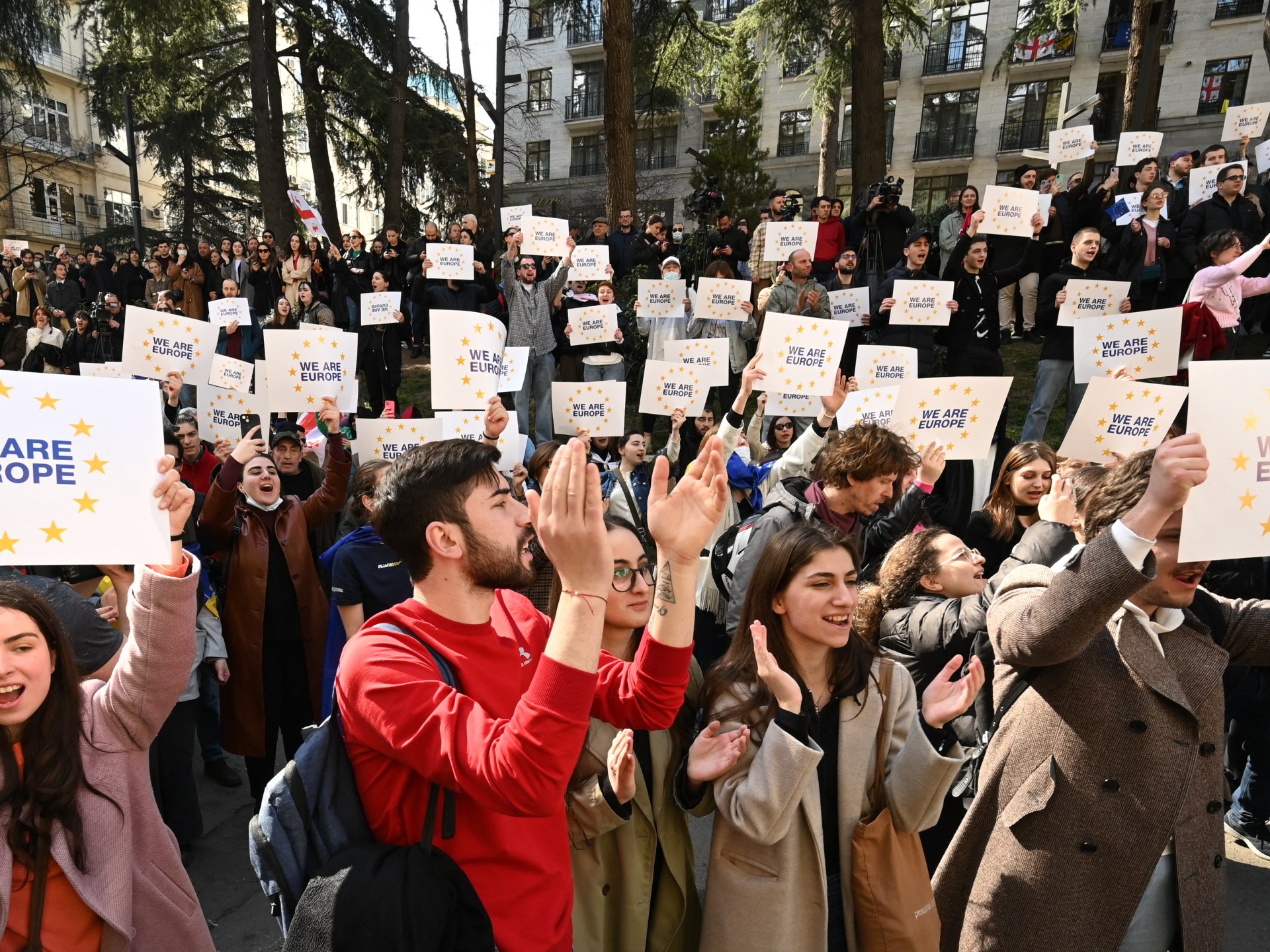
Protests called as Georgia revives controversial ‘foreign agents’ law
Al Jazeera
Georgia to drop foreign agents law after massive protests
Associated Press
Victory for Georgia protesters as government halts plan to bring in Putin-like authoritarian laws
Daily MailDiscover Related



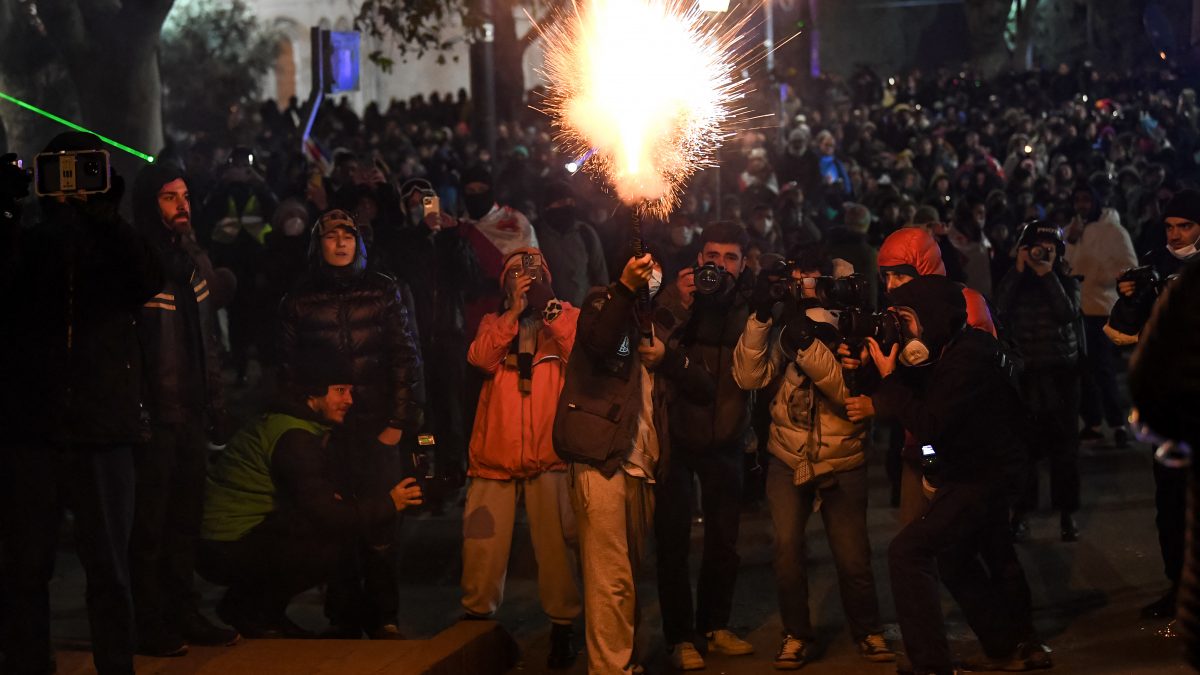)


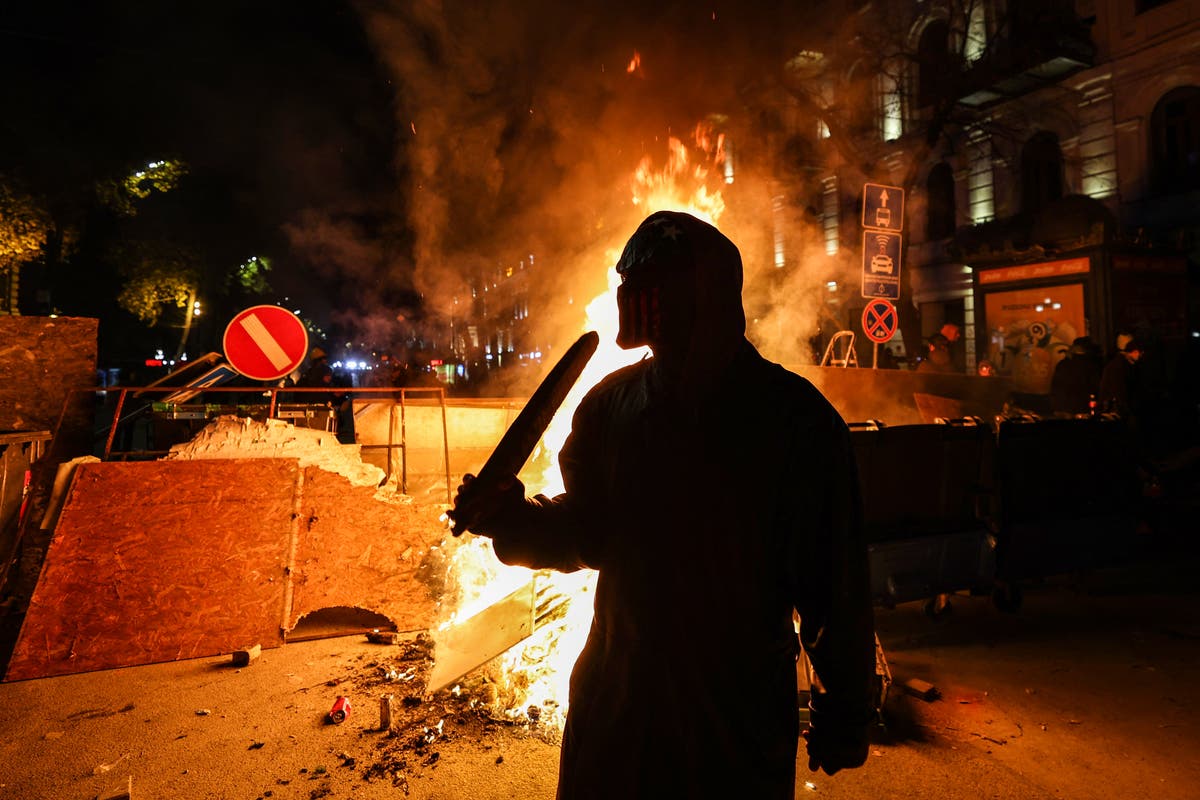
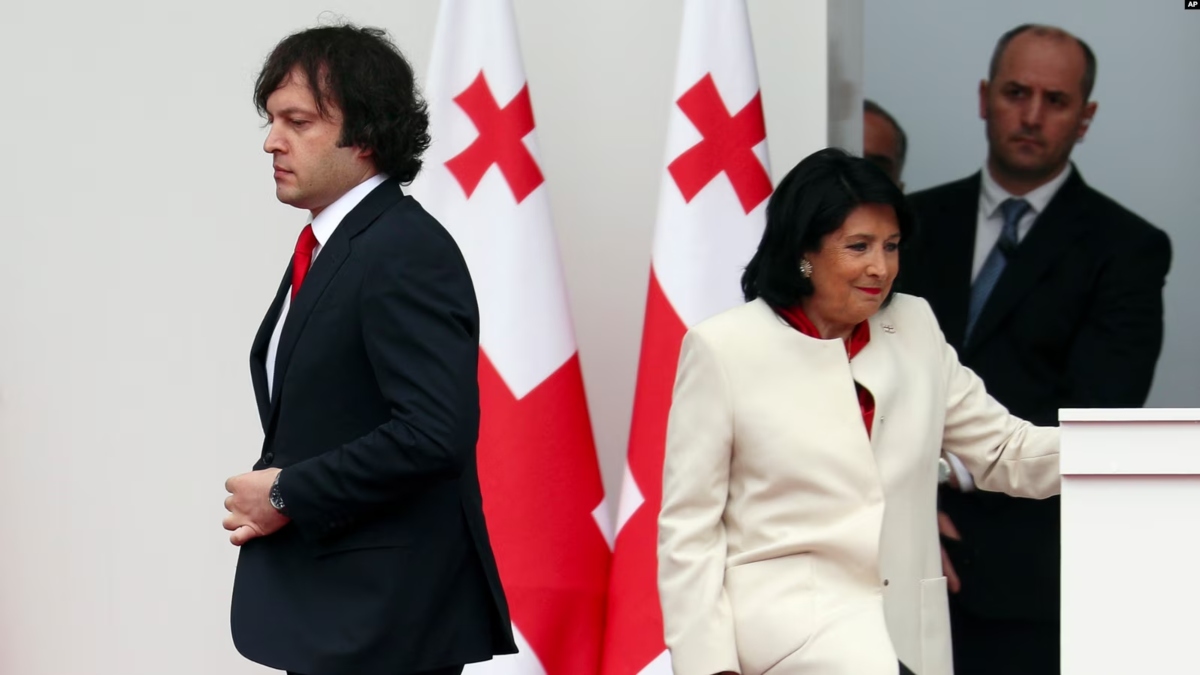)
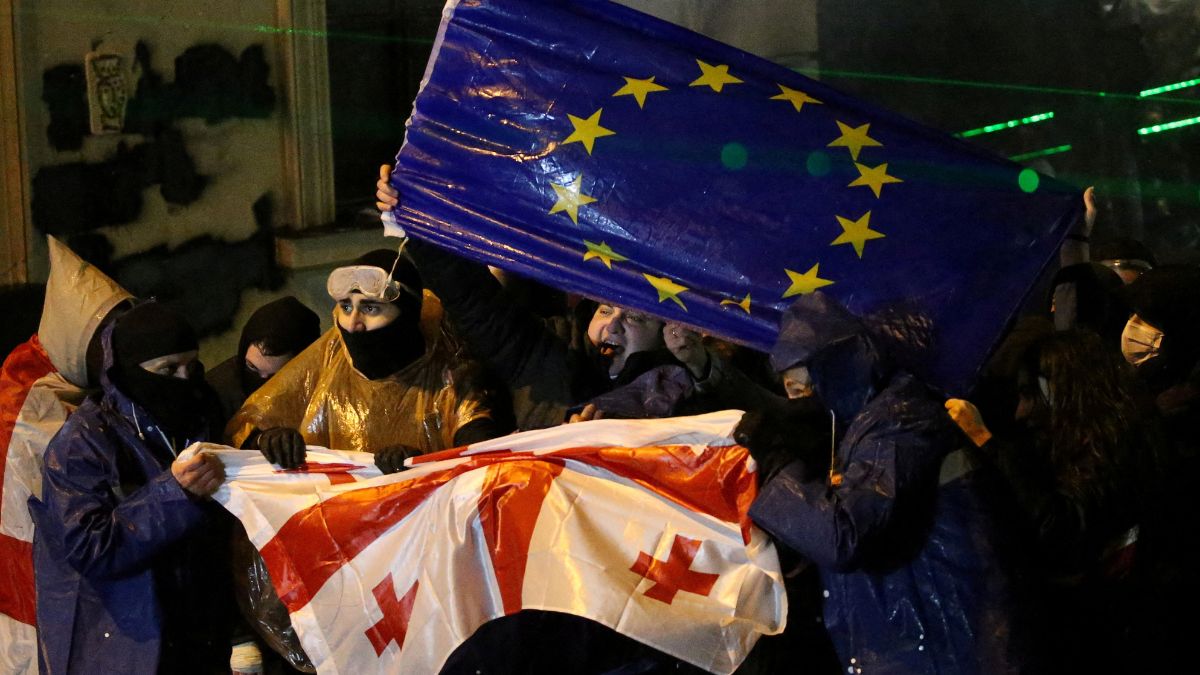)
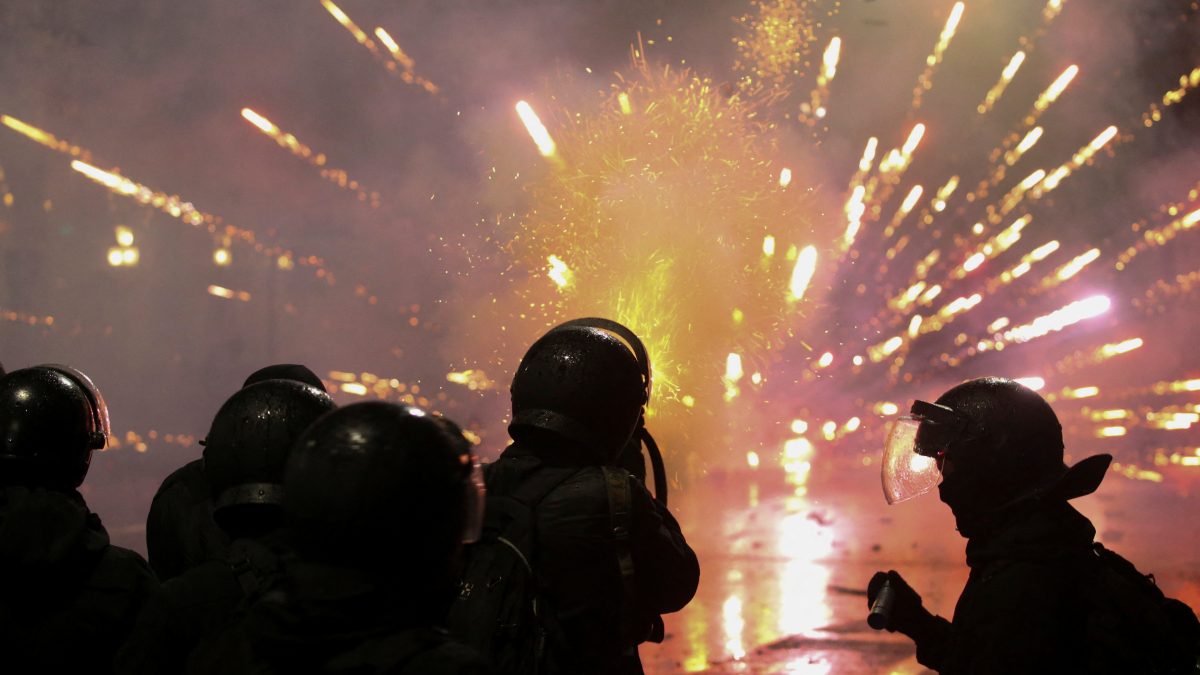)
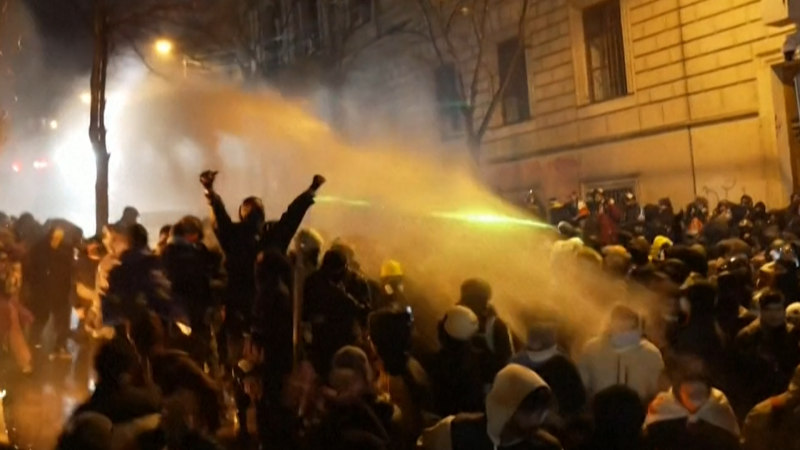


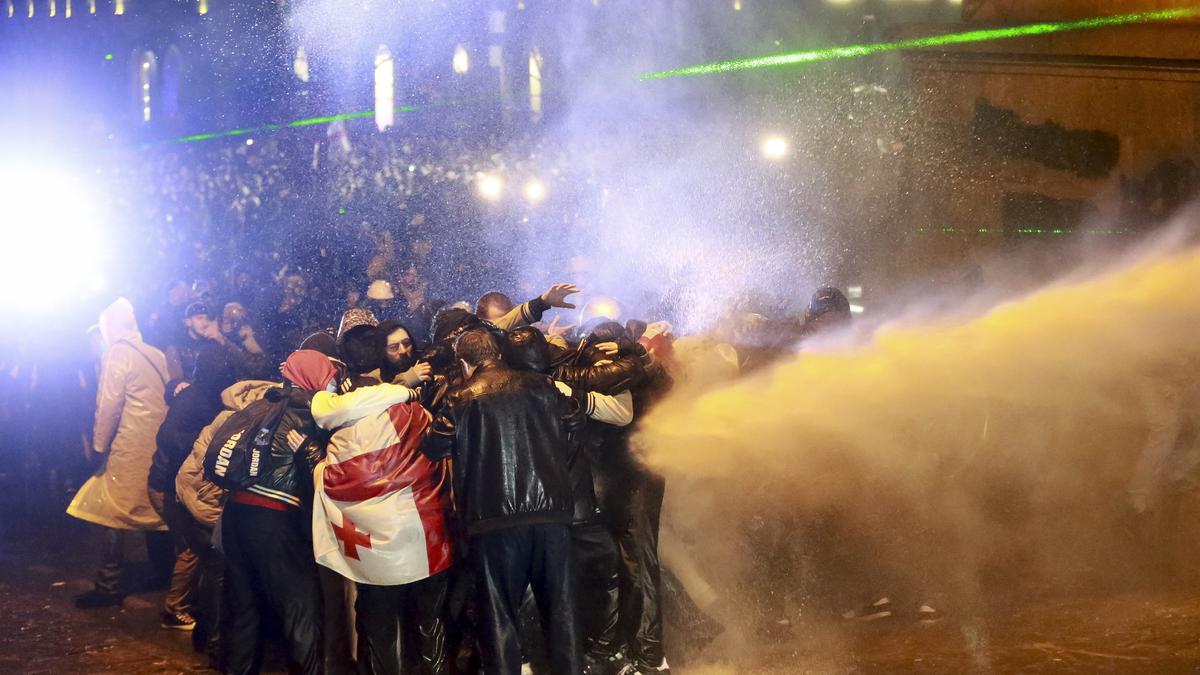

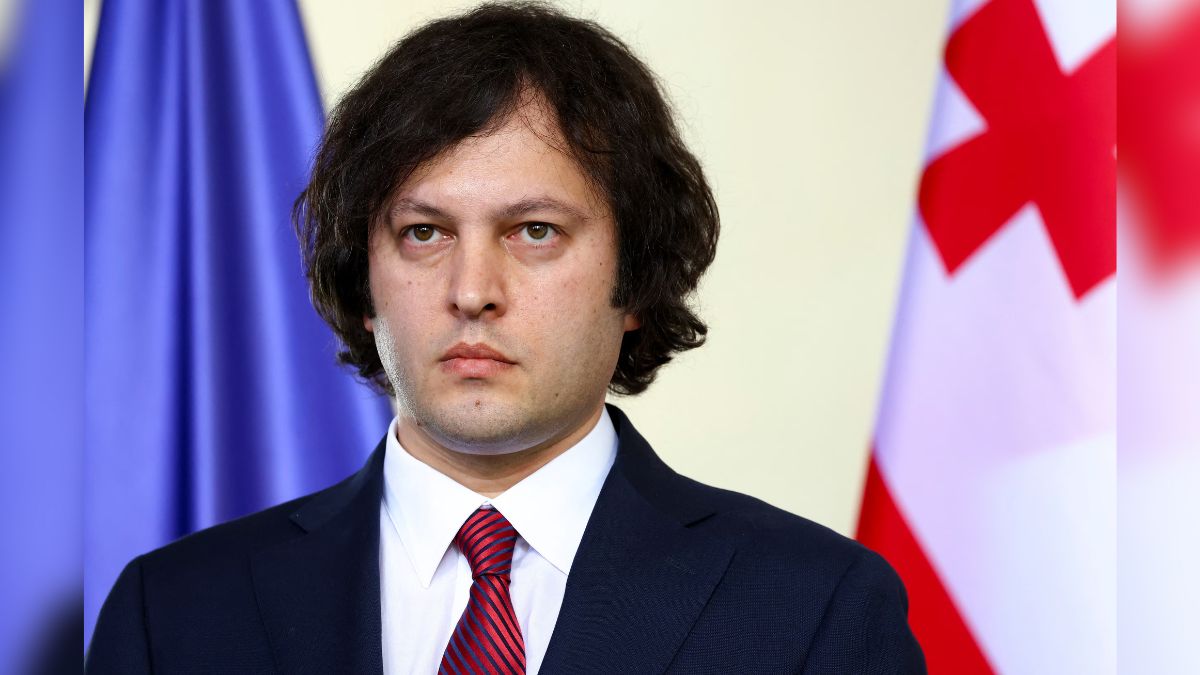)







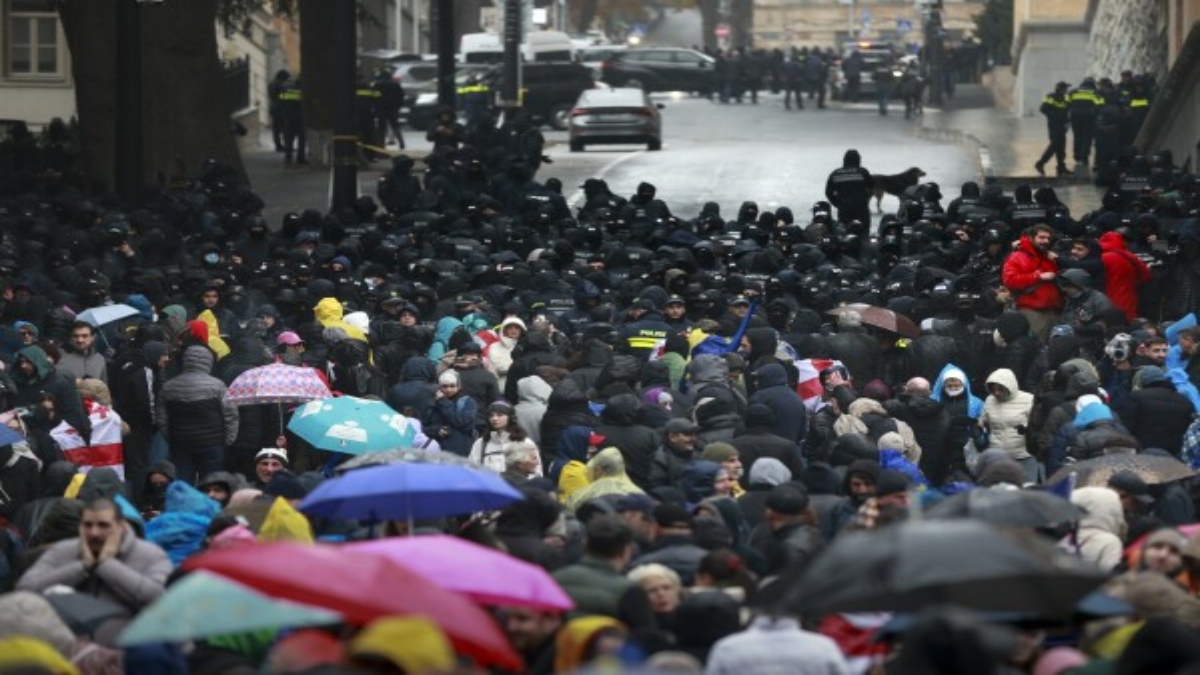)


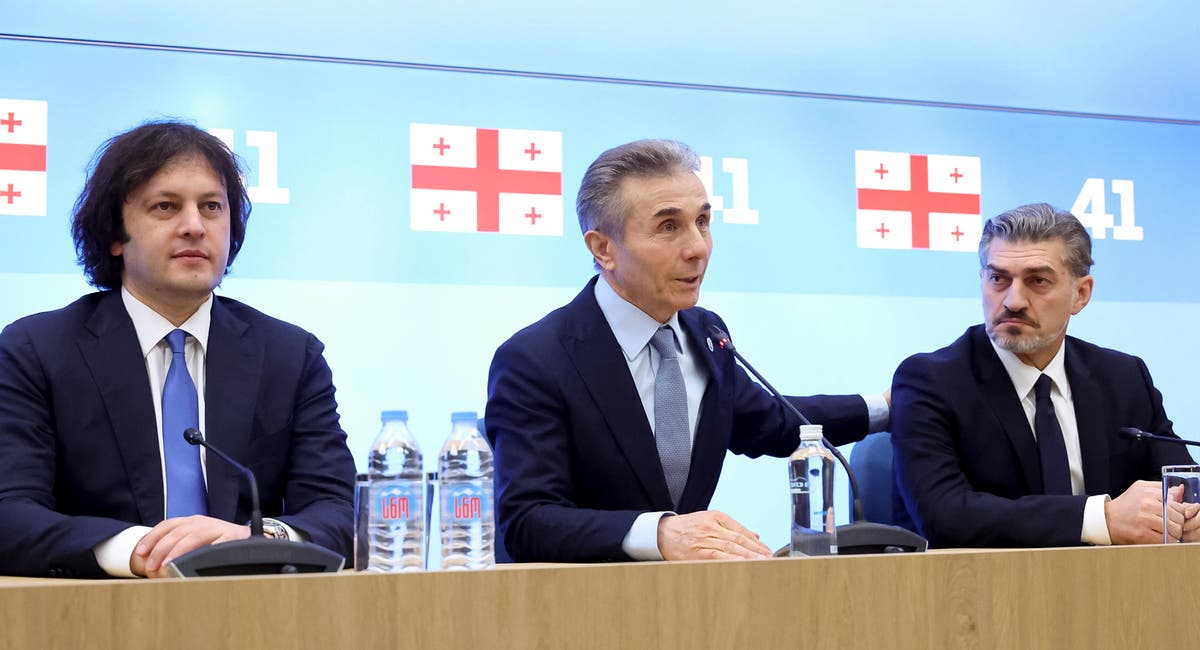
)








